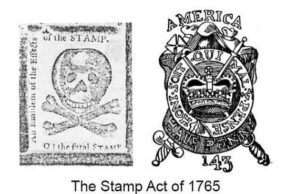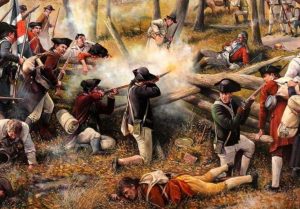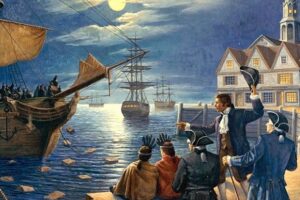
 When this country was young, in fact, shortly before the Declaration of Independence was signed, and during a March 19, 1775, speech before the second Virginia Convention, Patrick Henry (39 years old) responded to the increasingly oppressive British rule over the American colonies by declaring, “I know not what course others may take, but as for me, give me liberty or give me death!” The speech so impressed so many people that following the signing of the American Declaration of Independence on July 4, 1776, Patrick Henry was appointed governor of Virginia by the Continental Congress. He couldn’t have fully known with the future might bring, but I think he might have had an inkling of what an oppressive government could potentially do to a nation. His words were a warning, not only to his generation, but to generations to come.
When this country was young, in fact, shortly before the Declaration of Independence was signed, and during a March 19, 1775, speech before the second Virginia Convention, Patrick Henry (39 years old) responded to the increasingly oppressive British rule over the American colonies by declaring, “I know not what course others may take, but as for me, give me liberty or give me death!” The speech so impressed so many people that following the signing of the American Declaration of Independence on July 4, 1776, Patrick Henry was appointed governor of Virginia by the Continental Congress. He couldn’t have fully known with the future might bring, but I think he might have had an inkling of what an oppressive government could potentially do to a nation. His words were a warning, not only to his generation, but to generations to come.
This young nation had been overtaxed, underrepresented, and in some ways enslaved, and they were done with it. The first major American opposition to British policy came in 1765 when Parliament passed the Stamp Act, which was a taxation measure to raise money for a standing British army in America. Basically, the Americans were being forced to pay for an army that was to keep them in line. That brought about the protest of “no taxation without representation,” and colonists convened the Stamp Act Congress in October 1765 to vocalize their opposition to the tax. With the enactment of the Stamp Act Congress on November 1, 1765, most colonists called for a boycott of British goods and organized attacks on the customhouses and homes of tax collectors. After months of protest, Parliament repealed the Stamp Act in March 1766. Their plan had worked.
Even with the taxation of the Stamp Act, most colonists quietly accepted British rule, thinking that it was best not to cause trouble, but when Parliament enacted the Tea Act in 1773, which granted the East India Company a monopoly on the American tea trade, the American people had had enough. The Tea Act was viewed as another way to gouge the people with unfair taxation, militant Patriots in Massachusetts organized a protest that became known as the “Boston Tea Party,” at which, protesters dumped British tea valued at approximately 10,000 pounds into Boston Harbor. Of course, the “Boston Tea Party” and other blatant destruction of British property absolutely enraged Parliament. They enacted the Coercive Acts, also known as the Intolerable Acts, in the following year. The Coercive Acts closed Boston to merchant shipping, established formal British military rule in Massachusetts, made British officials immune to criminal prosecution in America, and required colonists to quarter British troops. The oppressive, tyrannical rule just continued to grow worse. The British thought that if they could keep the colonists “under their thumb,” as it were, they could basically make slave workers out of them, and gouge them for the monies to keep Britain running smoothly. The colonists had other ideas, and so they called the first Continental Congress to consider a united American resistance to the British…finally!!
Massachusetts would lead the way of resistance against the British, with the other colonies watching intently. They formed a shadow revolutionary government and established militia groups to resist the increasing British military presence across the colony. Thomas Gage, the British governor of Massachusetts, ordered British 
 troops to march to Concord, Massachusetts in April 1775, where a Patriot arsenal was known to be located. On April 19, 1775, the British regulars encountered a group of American militiamen at Lexington, and the American Revolutionary War began. The fact was that Patrick Henry saw something that others did not see, that an out of control, oppressive government can be a terribly destructive force, if it is not held at bay.
troops to march to Concord, Massachusetts in April 1775, where a Patriot arsenal was known to be located. On April 19, 1775, the British regulars encountered a group of American militiamen at Lexington, and the American Revolutionary War began. The fact was that Patrick Henry saw something that others did not see, that an out of control, oppressive government can be a terribly destructive force, if it is not held at bay.


Leave a Reply